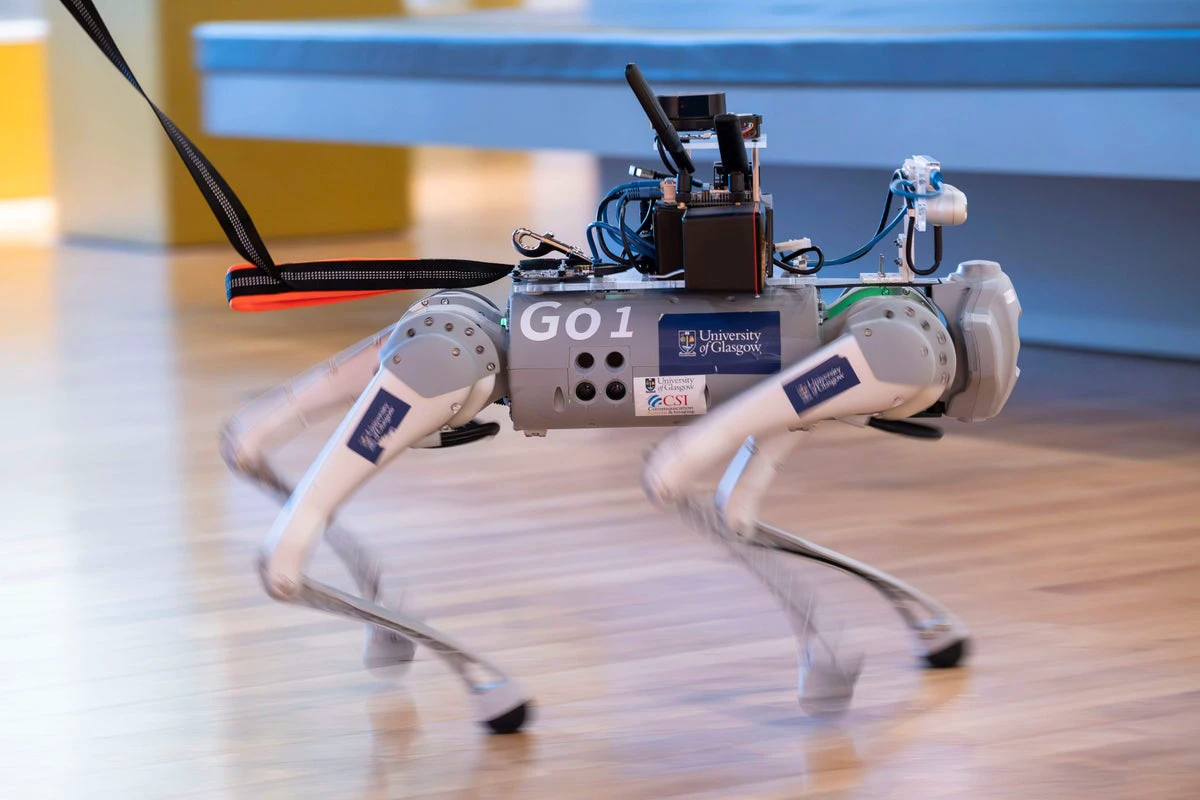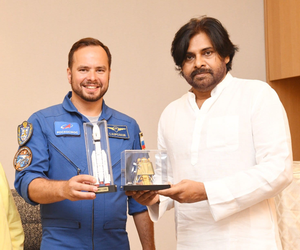AI-powered robot guide dogs developed for visually impaired

Blind and partially sighted people may soon be helped to find their way around indoors by robot guide dogs.
Experts from the University of Glasgow are helping to develop the RoboGuide, an AI-powered four-legged robot dog capable of chatting to humans.
The initiative aims to help the visually impaired move more freely around museums, shopping centres, hospitals and other public places.
The robot uses a series of sensors to accurately map and assess its surroundings.
Software developed by the team allows the RoboGuides to learn optimal routes between locations and interpret sensor data in real-time to help it avoid hitting moving obstacles while guiding a human.
They can also understand speech, giving it the ability to provide verbal responses in turn.
Olaoluwa Popoola, of the university’s James Watt School of Engineering, is the RoboGuide project’s principal investigator.
He said: “Assistive technologies like the RoboGuide have the potential to provide blind and partially sighted people with more independence in their daily lives in the years to come.
“One significant drawback of many current four-legged, two-legged and wheeled robots is that the technology which allows them to find their way around can limit their usefulness as assistants for the visually impaired.
“Robots which use GPS to navigate, for example, can perform well outdoors, but often struggle in indoor settings, where signal coverage can weaken.
“Others, which use cameras to ‘see’, are limited by line of sight, which makes it harder for them to safely guide people around objects or around bends.”
The ongoing development of the RoboGuide was showcased at the university’s Mazumdar-Shaw Advanced Research Centre on Thursday.
Developers say the prototype uses a number of cutting-edge technologies, and they aim to have a complete version available in the coming years.
There are an estimated 2.2 billion people in the world living with some form of vision loss, with around two million people in the UK affected.
Professor Muhammad Imran, dean of graduate studies at the James Watt School of Engineering, is co-investigator on the project.





